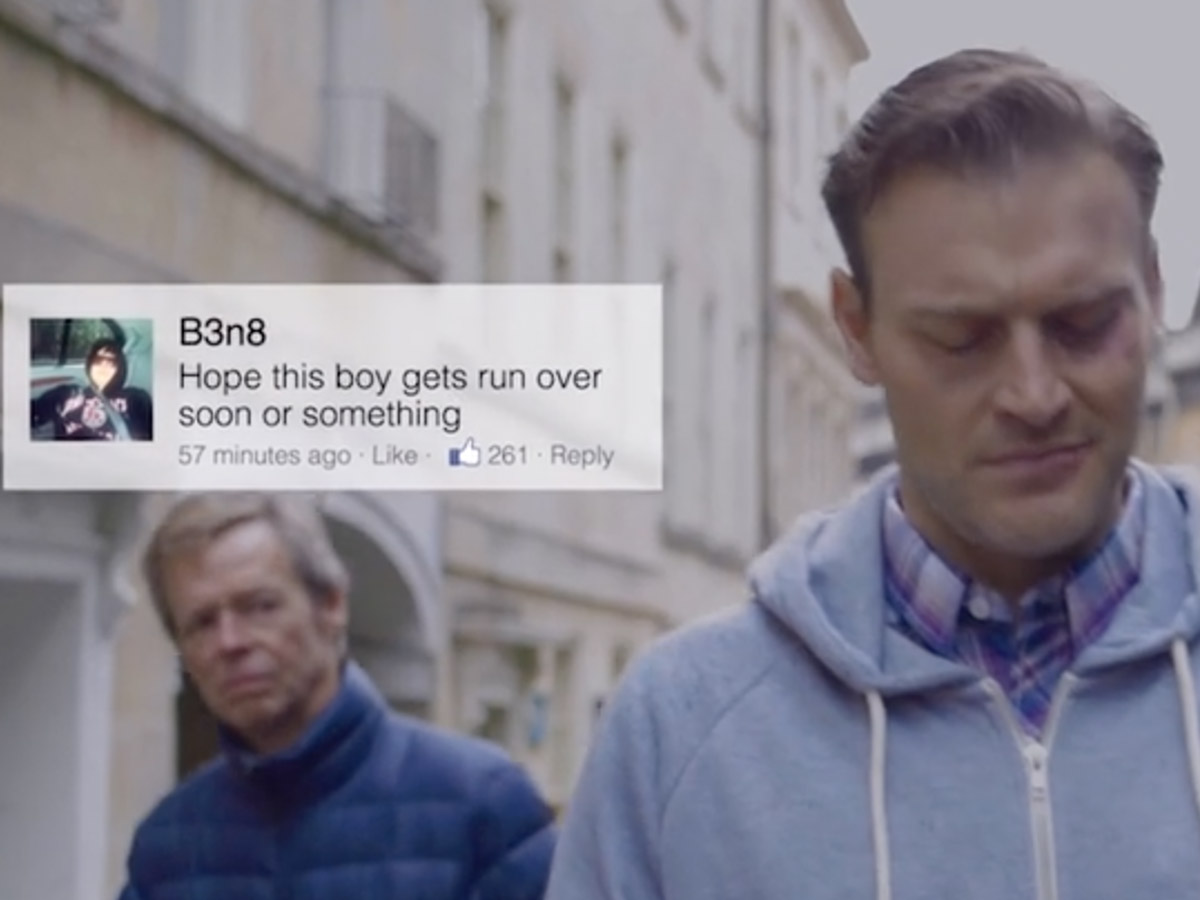Cyber-Bullying: A Not-So-New Form Of Abuse
Susie Williams joins an international movement to say NO to cyber-bullying.
The invention and development of cyber space has made our interactions and communication much more efficient. Instead of handwriting a letter, having to arrange a face-to-face meeting or even phoning someone, we can simply and easily type a few words into a box and DONE.
Sent. Delivered. Received.
Although this ‘giant leap forward for mankind’ has provided a huge support for our era, what is often overlooked is just how the medium is being used. And what the negative impacts it can have are.
…there is a HUGE and GROWING number of people facing it every day
Online abuse is becoming more and more common in this day and age. The umbrella of cyber abuse is vast, and ranges from making derogatory statements or threats online to harassment, stalking, hate campaigns, revenge porn and so forth. Through working with ALL RISE – a global anti cyber abuse organisation – and starting the discussion with over 250 teenagers across the world about their experience of online bullying, I can say that it is exceptionally rare to find someone who has not been a bystander or been personally victimised by this form of abuse. ALL RISE’s current survey into the issue found that 72% of adults and children state they have witnessed cyber abuse – which backs up the fact that there is a HUGE and GROWING number of people facing it every day. The sad thing is however, that it is becoming so normal and so accepted in our society that on first thought people often say ‘no I’ve never experienced it’, but later claim that they have actually been called names, bullied, sometimes threatened and a lot of the time say that they became upset, angry, depressed or even suicidal because of it, BUT THEY DID NOT CONSIDER IT ABUSE; instead something they had to ‘deal with’ because it is the 21st Century and this kind of thing happens daily.
People often identify cyber bullying as different to face-to-face bullying – and it is – but for different reasons than you might think. At first it may sound ‘easier’ to deal with than verbal or physical bullying; just turn off your computer. But it can be much more difficult to overcome; online abuse doesn’t wait for anyone. Bullies don’t have to delay their rants till break time or lunch; it can be 24/7. In conjunction there are no limits of location or audience – the bully amongst thousands of onlookers can follow you home, into your house, kitchen and bedroom. Switching off your computer or phone does momentarily stop you reading new messages or notifications, but it does not stop the filling up of your inbox, or the thoughts spinning around in your head.
One of the factors that make it so sinister is how easy it is to hide a name and an identity online.
One of the factors that make it so sinister is how easy it is to hide a name and an identity online. The sanction of anonymity on many sites results in an abundance of faceless abuse – where the victim has no idea who is tapping away on the other screen; who is hiding behind their the keyboard; who is attacking them. The use of pseudonyms is similar and is particularly widespread in the online gaming industry, where hate can reach unspeakable levels of vitriol. Such abuse only occurs because the abusers know they are free to do and say what they wish without consequence or accountability.
This sense of total irresponsibility can apply even when someone isn’t hiding behind a false name or ‘anon’. Those who you would never expect to hurt a fly sometimes do not hesitate to join in with online abuse – an opportunity to say all those unspoken comments without any repercussions or guilt. I say guilt because when online you cannot see the face of your addressee, and this does have a huge affect on how far the bully is willing to go, and at what point they decide to stop. The normalisation of online abuse has also made a huge impact on it’s growing frequency – it’s easy to see how it’s affecting our generation of youth who are engaging with it from a younger and younger age. Teenagers tend to be very active on social media, and for some, every time they unlock their phones they see hateful messages with hundreds, thousands of likes, shares and comments and eventually they themselves become the hundredth like; and thus a contributor to abuse.
Stalking, hacking, identity theft and revenge porn are becoming more common for adult…
Different to certain other forms of abuse it is not a phenomenon that happens to select groups; it doesn’t only just affect children, but adults too, of every gender and ethnicity. It is often stereotyped that young people, particularly teenagers, are the only ones who abuse and are abused – but cyber abuse continues past the realms of the playground and can be turned up a notch in adulthood. Stalking, hacking, identity theft and revenge porn are becoming more common for adults; all of which have the potential to be life ruining, and with a generation of youth growing older by the minute who have not been educated to an acceptable extent that online abuse can have harrowing and unspeakable consequence, we cannot expect a decline in these instances.
This ‘issue’ is yet to fully be discovered by the education system – verbal, physical, domestic and drug abuse is covered as part of their PSHE syllabus, but they have not yet caught up to the now not-so-new phenomenon of cyber abuse, which is rising by the minute in popularity and prevalence. The government also finds itself one step behind the issue – although in the UK the laws are there to tackle ‘severe’ cyber crime, day to day online abuse remains un-dealt with or seen to.
As evident by the above statements – cyber abuse is devastating; it is unfortunately spreading like a virus as the 3 billion or so Internet users grows by the minute. That said, it can only happen if we allow and accept it. Our contribution to the Internet makes a difference, as does our voice when we say NO to this form of abuse – reporting posts and refraining from liking or sharing abusive posts does make a difference.
Cyber abusers think they have the ‘upper hand’ on the Internet – but we have equal say over the content and quality of the online world and abusers are still the minority users. Sometimes it only takes one person to report a comment, picture or post that can stop thousands of others from making it viral, and ruining someone’s life.
HAVE YOUR SAY – Fill in ALL RISE’s Global Survey and Say NO to Cyber Abuse
What are your strategies for dealing with online abuse? Let us know: @rifemag
If you’ve been the victim of bullying and you’re looking for support, these places on the Rife Guide might be able to help out.








